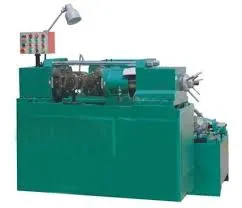
-
 Afrikaans
Afrikaans -
 Albanian
Albanian -
 Amharic
Amharic -
 Arabic
Arabic -
 Armenian
Armenian -
 Azerbaijani
Azerbaijani -
 Basque
Basque -
 Belarusian
Belarusian -
 Bengali
Bengali -
 Bosnian
Bosnian -
 Bulgarian
Bulgarian -
 Catalan
Catalan -
 Cebuano
Cebuano -
 Corsican
Corsican -
 Croatian
Croatian -
 Czech
Czech -
 Danish
Danish -
 Dutch
Dutch -
 English
English -
 Esperanto
Esperanto -
 Estonian
Estonian -
 Finnish
Finnish -
 French
French -
 Frisian
Frisian -
 Galician
Galician -
 Georgian
Georgian -
 German
German -
 Greek
Greek -
 Gujarati
Gujarati -
 Haitian Creole
Haitian Creole -
 hausa
hausa -
 hawaiian
hawaiian -
 Hebrew
Hebrew -
 Hindi
Hindi -
 Miao
Miao -
 Hungarian
Hungarian -
 Icelandic
Icelandic -
 igbo
igbo -
 Indonesian
Indonesian -
 irish
irish -
 Italian
Italian -
 Japanese
Japanese -
 Javanese
Javanese -
 Kannada
Kannada -
 kazakh
kazakh -
 Khmer
Khmer -
 Rwandese
Rwandese -
 Korean
Korean -
 Kurdish
Kurdish -
 Kyrgyz
Kyrgyz -
 Lao
Lao -
 Latin
Latin -
 Latvian
Latvian -
 Lithuanian
Lithuanian -
 Luxembourgish
Luxembourgish -
 Macedonian
Macedonian -
 Malgashi
Malgashi -
 Malay
Malay -
 Malayalam
Malayalam -
 Maltese
Maltese -
 Maori
Maori -
 Marathi
Marathi -
 Mongolian
Mongolian -
 Myanmar
Myanmar -
 Nepali
Nepali -
 Norwegian
Norwegian -
 Norwegian
Norwegian -
 Occitan
Occitan -
 Pashto
Pashto -
 Persian
Persian -
 Polish
Polish -
 Portuguese
Portuguese -
 Punjabi
Punjabi -
 Romanian
Romanian -
 Russian
Russian -
 Samoan
Samoan -
 Scottish Gaelic
Scottish Gaelic -
 Serbian
Serbian -
 Sesotho
Sesotho -
 Shona
Shona -
 Sindhi
Sindhi -
 Sinhala
Sinhala -
 Slovak
Slovak -
 Slovenian
Slovenian -
 Somali
Somali -
 Spanish
Spanish -
 Sundanese
Sundanese -
 Swahili
Swahili -
 Swedish
Swedish -
 Tagalog
Tagalog -
 Tajik
Tajik -
 Tamil
Tamil -
 Tatar
Tatar -
 Telugu
Telugu -
 Thai
Thai -
 Turkish
Turkish -
 Turkmen
Turkmen -
 Ukrainian
Ukrainian -
 Urdu
Urdu -
 Uighur
Uighur -
 Uzbek
Uzbek -
 Vietnamese
Vietnamese -
 Welsh
Welsh -
 Bantu
Bantu -
 Yiddish
Yiddish -
 Yoruba
Yoruba -
 Zulu
Zulu
Bolt Thread Rolling Machine Maintenance and Support Solutions for Optimal Performance
The Importance of Bolt Thread Rolling Machine Service
In the realm of manufacturing, precision and efficiency are paramount. One of the essential processes in the production of bolts and screws is thread rolling. This technique utilizes bolt thread rolling machines, which play a crucial role in creating strong and precise threads on fasteners. However, to ensure optimal performance and longevity of these machines, regular service and maintenance are vital. This article delves into the significance of bolt thread rolling machine service, its benefits, and best practices for maintaining these machines.
Understanding Bolt Thread Rolling Machines
Bolt thread rolling machines are specialized equipment used to form threads on cylindrical metal workpieces through a process known as cold rolling. This process not only enhances the mechanical properties of the bolts but also ensures a higher degree of precision compared to traditional cutting methods. The machine operates by placing a blank bolt between two dies that have the desired thread profile. As the dies rotate and move together, they compress the material, effectively rolling the threads into the bolt.
The Need for Regular Service
Despite their robust construction, bolt thread rolling machines are not immune to wear and tear. Over time, the rolling dies can become dull, leading to poor thread quality and increased cycle times. Additionally, components such as bearings, gears, and motors can experience wear, resulting in decreased efficiency and potential breakdowns. Regular service is essential to address these wear-related issues, ensuring that the machines operate at peak performance and minimizing downtime.
Benefits of Maintenance and Service
1. Enhanced Performance Regular servicing ensures that the threading process remains smooth and efficient. This can lead to a significant reduction in production cycle times and an increase in output.
2. Quality Assurance Consistent maintenance allows for the early detection of potential issues, such as misalignments or wear, ensuring that the threads produced meet the required quality standards. This is crucial in industries where precision is vital, such as automotive and aerospace.
3. Cost-Effectiveness Investing in routine service can prevent costly repairs and extensive downtime caused by unexpected machine failures. By identifying and correcting minor issues before they escalate, businesses can save on long-term operational costs.
4. Extended Equipment Lifespan Regular maintenance helps in extending the lifespan of the bolt thread rolling machines. By ensuring that every component is functioning correctly, businesses can delay or avoid the need for costly replacements.
bolt thread rolling machine service

5. Safety Properly maintained machines pose fewer safety risks to operators. Regular checks can identify worn parts that may lead to malfunction, ensuring a safer working environment.
Best Practices for Machine Maintenance
To achieve the best outcomes from bolt thread rolling machine service, manufacturers should adopt several best practices
- Routine Inspections Schedule regular inspections to check for wear and tear in critical components, such as dies, bearings, and motors.
- Lubrication Ensure that all moving parts are properly lubricated to minimize friction and wear. This also helps in maintaining temperature stability during operation.
- Calibration Regularly calibrate the machine settings to ensure that it produces threads according to specifications. Any deviations should be promptly addressed.
- Training Provide training for operators on the importance of machine maintenance and recognizing signs of wear. Empowered operators can play a crucial role in effective maintenance.
- Documentation Keep detailed records of all maintenance activities, including inspections, repairs, and replacements. This documentation can be invaluable for tracking machine performance and planning future service needs.
Conclusion
In conclusion, the service and maintenance of bolt thread rolling machines are critical to ensuring the efficiency, quality, and longevity of these vital pieces of equipment. By prioritizing regular service and adopting best practices for maintenance, manufacturers can optimize their production processes, reduce costs, and ultimately, achieve better outcomes in the fast-paced world of manufacturing. Emphasizing the importance of maintenance not only secures the operational efficiency of machines but also contributes to the overall success of the production facility.
